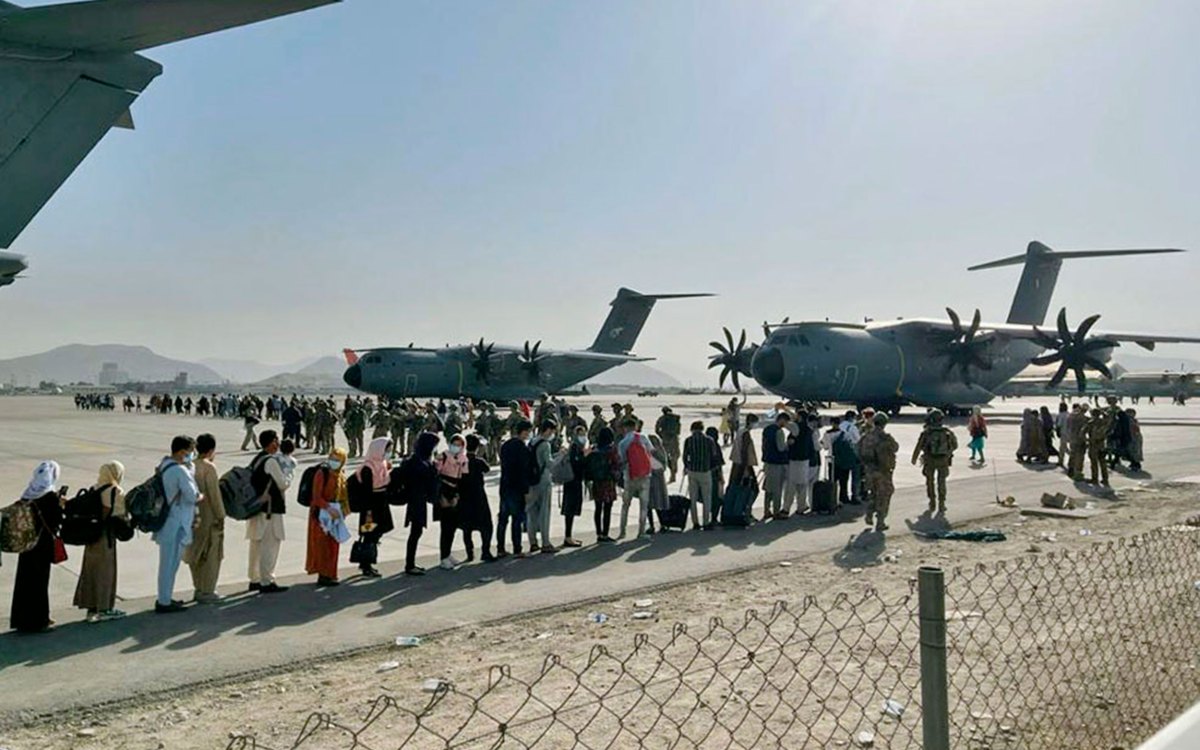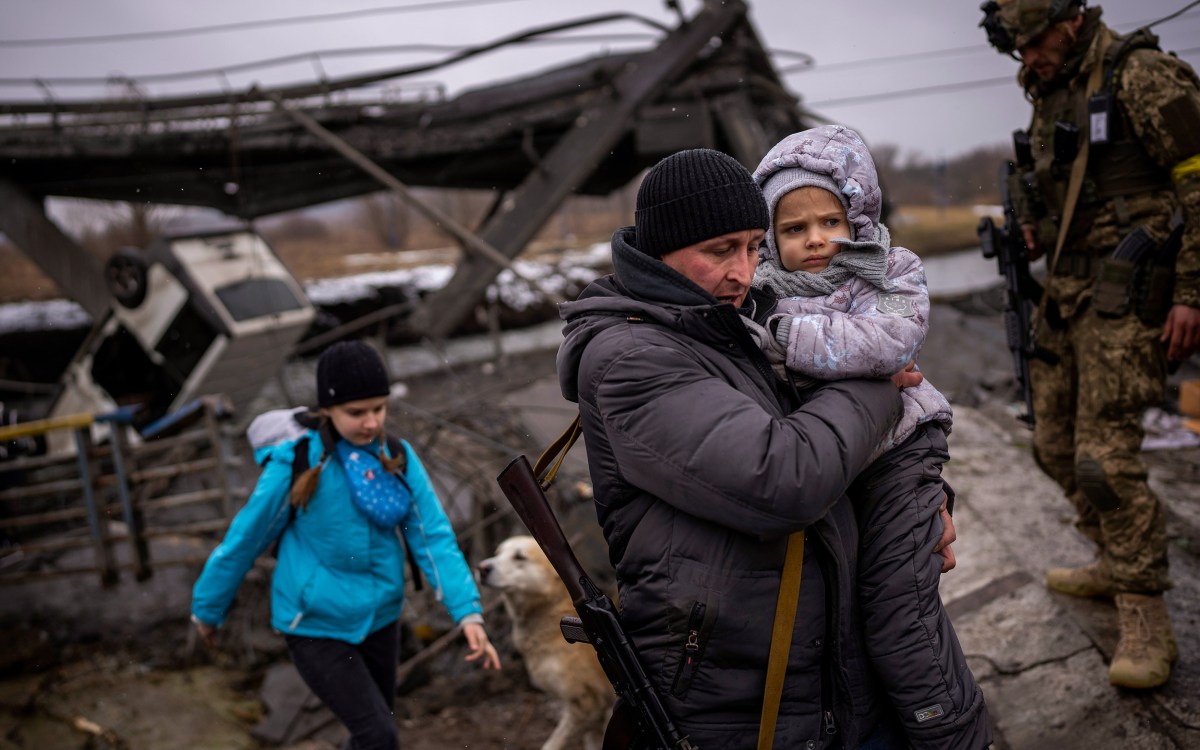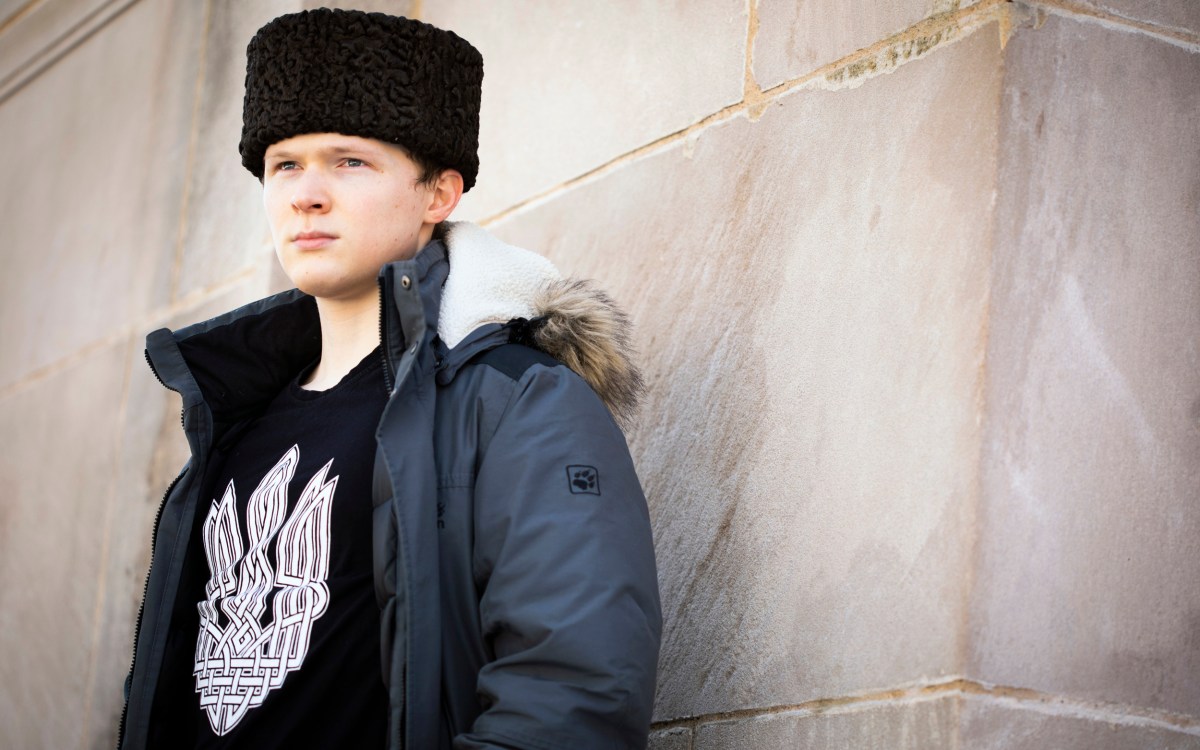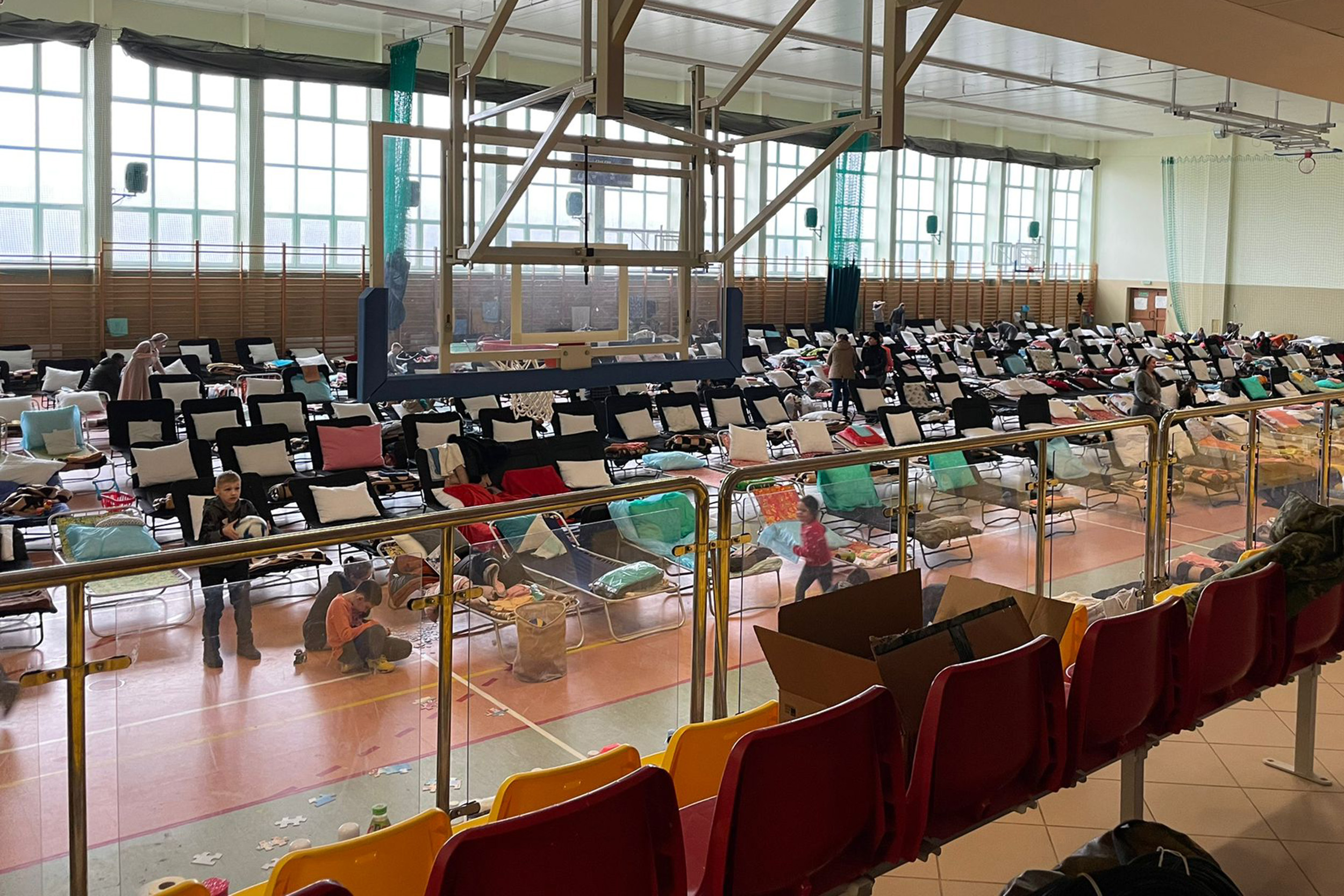
Many of the Ukrainian refugees in centers like this one in Poland have no sense of what the future holds, says Harvard doctor Morgan Broccoli.
Images courtesy of Morgan Broccoli
Harvard doctor assessing refugees in Poland sees deep psychological wounds
Ukrainians fear for safety of family members as health workers and humanitarian groups provide maternal, pediatric care and treatment for illnesses
Humanitarian groups and the Polish government are so far keeping up with the waves of Ukrainian refugees fleeing Russia’s invasion, according to Morgan Broccoli, a Harvard physician in Poland, but aid has yet to reach areas of active conflict and relief workers are bracing for the border situation to deteriorate if fighting spreads west.
Broccoli, an emergency doctor and clinical fellow at Brigham and Women’s Hospital and Harvard Medical School, arrived in Poland on March 1 and has spent the last week traveling with the nonprofit Team Rubicon conducting a needs assessment to inform humanitarian missions in the days and weeks ahead. She has visited border crossings, hospitals, and other key locations, talking with fellow physicians, aid workers, and refugees.
In total, more than 2 million refugees have fled Ukraine since the invasion, with the majority crossing into Poland. Most are women and children — the government of President Volodymyr Zelensky has barred men under 60 from leaving the country — who have left their homes to seek safety. Few, if any, have acute needs. Instead, Broccoli said, they are seeking treatment of viral illnesses and injuries developed during the trip, medications for chronic ailments such as heart disease and diabetes, and maternity and pediatric care. But if the physical needs are mostly routine, the scale of psychological trauma, including anxiety for the safety of loved ones, is deep and widespread. Many have left behind husbands and sons, and have no sense of what the future holds. Broccoli’s four-person assessment team is recommending that future aid groups include pediatricians and psychologists.
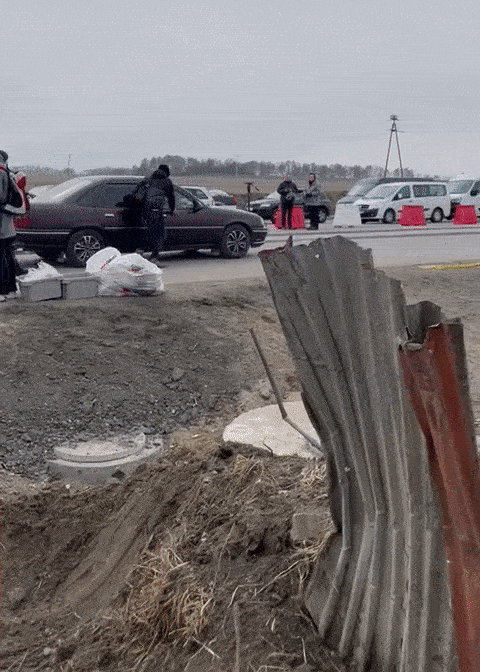
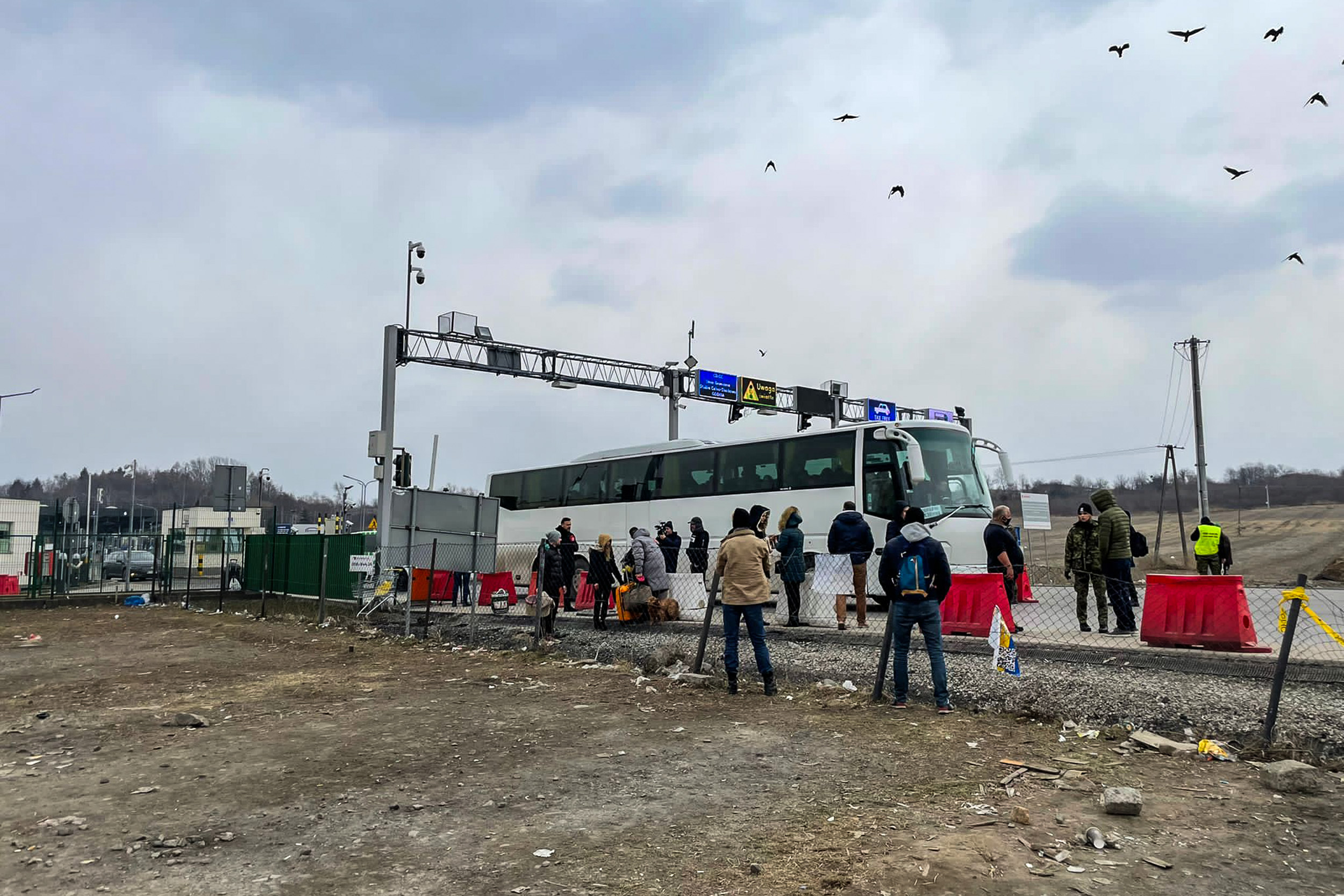
Ukrainian refugees arrive at the border crossing in Medyka, Poland.
“One of the biggest needs we’ve seen is just psychological support,” said Broccoli, who is also affiliated with the Harvard Humanitarian Initiative. “We’re speaking to women whose husbands are back in the country and talking with them about their future plans and all the people we’ve talked to have basically said ‘We don’t know, we will go back when it’s safe, but we don’t know how long that’s going to be.’”
Broccoli gave high marks to the Polish government, the Polish Red Cross, and other agencies that are handling the stream of refugees. While the wait in Ukraine to cross the border can stretch to 24 hours, once in Poland refugees are processed quickly, given food and clothing, and then transferred from the border to facilities elsewhere in the country. However, safety concerns are keeping responders out of areas of highest need, where the fighting is ongoing, and there have been reports of Russian attacks on hospitals and clinics.
Broccoli said her team is planning a trip to Lviv, Ukraine, a major city about 50 miles from the border to the west. The city has not experienced sustained Russian attack, but its health care system is thought to be under strain.
“The Ukrainian health care system is more disrupted than the Polish one, so it’s much more difficult for the Ukrainian health care system to meet even the smaller amount of medical needs,” Broccoli said. “But the biggest need overall — which is something I don’t think any humanitarian actor has figured out — is how to get medical aid to the people in and around the towns where there is active conflict going on.”
While health care workers in Poland and other nations are doing “a phenomenal job,” Broccoli said that if the refugee wave grows significantly, relief workers could assist in hospitals to relieve overtaxed staff.
“Like any doctor, we just want to help people who need help,” Broccoli said.



